Your search “Keep%20the%20death%20penalty%abolished%20in%20the%20ePhilippfines%20e%20e%20e%20e%20e%20e%20e%20e%20e%20e/page/com16501.content.olc.org/com/ref/collection/criminal/did/154 ”
Document(s)
Death Row’s Children: Pakistan’s Unlawful Executions of Juvenile Offenders
By Justice Project Pakistan, on 1 January 2017
2017
NGO report
More details See the document
On 16 December 2014, the Government of Pakistan lifted a six-year de facto moratorium on the death penalty. Whilst the Government claims that the lifting of the moratorium is designed to curb terrorism, an analysis of the 423 executions that have taken place till February 2017 reveals that the death penalty has disproportionately impacted the most vulnerable of all populations including juvenile offenders. Even though Pakistan’s international obligations and domestic laws prohibit sentencing juvenile offenders to death, at least 6 have been executed in the past two years.Through this report, the Justice Project Pakistan highlights the fundamental weaknesses under Pakistan’s juvenile justice system that lead to the unlawful and arbitrary implementation of the death penalty against juvenile offenders.
- Document type NGO report
- Themes list Juveniles, Fair Trial, International law, Cruel, Inhuman and Degrading Treatment and Punishment, Death Penalty, Country/Regional profiles,
Document(s)
For or against abolition of the death penalty: Evidence from Taiwan
By Taiwan Alliance to End the Death Penalty / The Death Penalty Project, on 8 September 2020
2020
NGO report
More details See the document
- Document type NGO report
- Themes list Public opinion, Death Penalty,
Document(s)
Stolen Youth. Juvenils, mass trials and the death penalty in Egypt
By Reprieve, on 1 January 2019
2019
NGO report
More details See the document
- Document type NGO report
- Themes list Juveniles, Fair Trial, Death Penalty,
Document(s)
Indonesian : Tidak Manusiawi: Kondisi Lembaga Pemasyarakatan Bagi Terpidana Mati di Indonesia
By Ensemble contre la peine de mort (ECPM) / Kontras / Carole Berrih, on 8 September 2020
2020
NGO report
Indonesia
enMore details See the document
Meskipun telah banyak penelitian telah dilakukan terkait dengan administrasi peradilan dalam kasus-kasus hukuman mati di Indonesia, hanya sedikit penelitian tentang kondisi penahanan seseorang yang dijatuhi hukuman mati di sebuah negara. Penelitian ini adalah salah satu penelitian pertama yang berfokus pada kondisi penahanan narapidana yang di hukum mati di Indonesia. Laporan ini bertujuan untuk memberikan suara kepada mereka yang mengalami hukuman mati di Indonesia dan juga pendapat dari keluarga mereka, bersamaan dengan mendokumentasikan situasi mereka.
- Document type NGO report
- Countries list Indonesia
- Themes list Death Row Conditions, Country/Regional profiles,
- Available languages Dehumanized: The Prison Conditions of People Sentenced to Death in Indonesia
Document(s)
The Death Penalty Project: 2018 Report
By The Death Penalty Project, on 1 January 2019
2019
NGO report
More details See the document
The Death Penalty Project publishes its 2018 annual report. It provides testimonies, figures and a look on the actions accomplished in favour of the human rights worlwide.
- Document type NGO report
- Themes list Right to life, Legal Representation, Death Penalty,
Document(s)
Too Broken to Fix: Part I – An In-depth Look at America’s Outlier Death Penalty Counties
By Fair Punishment Project, on 8 September 2020
2020
NGO report
United States
More details See the document
The trends are clear. In 2015, juries returned the fewest number of new death sentences—49—since the death penalty was reinstated in 1976.Of the 3,143 county or county equivalents in the United States, only 16—or one half of one percent—imposed five or more death sentences between 2010 and 2015.This report takes a close look at how capital punishment operates on the ground in half of these active death-sentencing counties. In this first report, we dig deep into Caddo, Clark, Duval, Harris, Maricopa, Mobile, Kern, and Riverside counties. Our review reveals that these counties frequently share at least three systemic deficiencies: a history of overzealous prosecutions, inadequate defense lawyering, and a pattern of racial bias and exclusion. These structural failings regularly produce two types of unjust outcomes which disproportionately impact people of color: the wrongful conviction of innocent people, and the excessive punishment of persons who are young or suffer from severe mental illnesses, brain damage, trauma, and intellectual disabilities.
- Document type NGO report
- Countries list United States
- Themes list Trend Towards Abolition, Country/Regional profiles,
Document(s)
The Report of the Oklahoma Death Penalty Review Commission
By The Constitution Project, on 1 January 2016
2016
NGO report
More details See the document
The Oklahoma Death Penalty Review Commission (Commission) came together shortly after the state of Oklahoma imposed a moratorium on the execution of condemned inmates. In late 2015, Oklahoma executions were put on hold while a grand jury investigated disturbing problems involving recent executions, including departures from the execution protocols of the Department of Corrections. The report of the grand jury, released in May of 2016, was highly critical and exposed a number of deeply troubling failures in the final stages of Oklahoma’s death penalty
- Document type NGO report
- Themes list World Coalition Against the Death Penalty, Death Penalty,
Document(s)
Missouri’s Death Penalty in 2016: The Year in Review
By Missourians for Alternatives to the Death Penalty, on 1 January 2016
NGO report
More details See the document
MADP’s 2016 report has compiled the death penalty data for the State of Missouri in 2016 and notices a significant decline of executions (6 in 2015, 1 in 2016). Moreover, no new death sentences were handed down in Missouri in 2016
- Document type NGO report
- Themes list Death Row Conditions, Discrimination, Death Penalty, Statistics, Country/Regional profiles,
Document(s)
Death Penalty Information Pack
By Penal Reform International , on 1 January 2014
2014
NGO report
More details See the document
PRI information pack on the state of the death penalty in 2014: international trends toward abolition; moratorium; the death penalty for the “most serious crimes”; right to a fair trial; mandatory death penalty; conditions of imprisonment; clemency; execution; transparency; deterrence; public opinion; victims’ rights.
- Document type NGO report
- Themes list Networks,
Document(s)
Department of Public Information Non-Governmental Organizations
By United Nations / Department of Public Information Non-Governmental Organizations, on 8 September 2020
2020
Working with...
eszh-hantfrruMore details See the document
The NGO Relations Cluster is the link to over 1,500 Non-governmental Organizations (NGOs) associated with the Department of Public Information and supports their efforts to interact effectively with the United Nations in their areas of expertise.
- Document type Working with...
- Themes list Networks,
- Available languages Sección de las Organizaciones no Gubernamentales联合国新闻部非政府组织Section des Organisations Non GouvernementalesНеправите Неправительственные организации (льственные организации)
Document(s)
Indigenous constitutionalism and the death penalty: The case of the Commonwealth Caribbean
By Margaret A. Burnham / International Journal of Constitutional Law, on 1 January 2005
2005
Article
Antigua and Barbuda
More details See the document
The Commonwealth Caribbean remains an obstinate holdout against the international trend limiting use of the death penalty. The death row population in the region per capita is about four times that of the United States. Widely debated in legal circles for a decade, capital punishment jurisprudence will be affected by the creation of the regional appellate court that was launched in April 2005. Modeled after the European Court of Justice, the Caribbean Court of Justice (CCJ) will assume the constitutional jurisdiction currently exercised by the Judicial Committee of the London-based Privy Council. Critics claim the CCJ was created to undo the constraints on the death penalty decreed by the Privy Council and international human rights tribunals, while proponents maintain that the new court completes the region’s assumption of sovereignty. This article situates the debate in the constitutional history of the independence era, the current regionalization movement, and the interplay between international norms and domestic fundamental rights.
- Document type Article
- Countries list Antigua and Barbuda
Document(s)
Training Resource: Protecting the Rights of Those Facing the Death Penalty and Life and Long-Term Imprisonment
on 1 January 2011
2011
Working with...
More details See the document
PRI training resource (1/3): Aimed mainly to mid-level prison officers, this resource’s trains these stakeholders on: due process and fair trial standards, international standards on the treatment of prisoners, vulnerable prisoners, building a rehabilitation-oriented penal culture.
- Document type Working with...
- Themes list Fair Trial, Death Row Conditions,
Document(s)
Alternative Sanctions to the Death Penalty Information Pack
By Penal Reform International, on 1 January 2011
Arguments against the death penalty
More details See the document
PRI information kit on the alternative sanctions to the death penalty: ; a review of current practices; the increasing use of ‘life’ and long-term sentences and their contribution to growing prison numbers; 12 steps toward alternative sanctions to the death penalty that respect international human rights standards and norms.
- Document type Arguments against the death penalty
- Themes list Sentencing Alternatives,
Document(s)
Human Rights and Vulnerable Prisoners (pages 121-132)
By Penal Reform International, on 1 January 2003
2003
Working with...
fafresMore details See the document
This manual is a resource for those who deliver training and workshops on human rights in prisons. It explores the fundamentals of good prison management, focusing specifically on international standards for the treatment of prisoners and the special needs of vulnerable categories of prisoner.
- Document type Working with...
- Themes list Networks,
- Available languages حقوق بشر و زندانیها اسیب پزیرManuel de formation n°1 Droits humains et détenus vulnérablesManual de Capacitación No. 1 Derechos Humanos y Prisioneros Vulnerables
Document(s)
Getting It Right Project
By Brandon Garret / The Innocence Project, on 1 January 2011
2011
Legal Representation
More details See the document
Getting it right is a project to learn more about the central causes of wrongful convictions and suggested reforms to prevent future injustice. It analyses the role of eyewitness, forensics, confessions, informants, representation and law enforcement.
- Document type Legal Representation
- Themes list Innocence,
Document(s)
Sources of Variation in Pro-Death Penalty Attitudes in China: An Exploratory Study of Chinese Students at Home and Abroad
By Lening Zhang / Terance D. Miethe / Hong Lu / Bin Liang / British Journal of Criminology, on 1 January 2006
2006
Article
China
More details See the document
This paper examines Chinese students’ attitudes about the death penalty in contemporary China. Drawing upon Western public opinion research on the death penalty, samples of Chinese college students at home and abroad are used to explore the magnitude of their pro-death penalty attitudes and sources of variation in these opinions. Both groups of Chinese students are found to support the death penalty across different measures of this concept. Several individual and contextual factors are correlated with pro-death penalty attitudes, but the belief in the specific deterrent effect of punishments was the only variable that had a significant net effect on these attitudes in our multivariate analysis. The paper concludes with a discussion of the implications of this study for future research on public opinion about crime and punishment in China.
- Document type Article
- Countries list China
- Themes list Public opinion, Public debate,
Document(s)
The Kentucky Death Penalty Assessment Report: Evaluating fairness and accuracy in state death panlty systems. An Analysis of Kentucky’s Death Penalty Laws, Procedures, and Practices
By American Bar Association, on 1 January 2011
2011
NGO report
More details See the document
This report examines how state death penalty systems are functioning in design and practice and are intended to serve as the bases from which states can launch comprehensive self-examinations, impose reforms, or in some cases, impose moratoria.
- Document type NGO report
Document(s)
Cameron Todd Willingham: Wrongfully Convicted and Executed in Texas
By The Innocence Project, on 1 January 2011
Legal Representation
More details See the document
Tool containing all the documents on Cameron Todd’s case.
- Document type Legal Representation
- Themes list Innocence, Country/Regional profiles,
Document(s)
Executions, Imprisonment and Crime in Trinidad and Tobago
By David F. Greenberg / British Journal of Criminology, on 1 January 2012
2012
Article
Trinidad and Tobago
More details See the document
A study of the impact of capital punishment in the Caribbean republic is of particular interest because of its high level of death-penalty sentencing.
- Document type Article
- Countries list Trinidad and Tobago
- Themes list Country/Regional profiles,
Document(s)
Media Monitoring, Information Scanning and Intelligence
By Human Rights Information and Documentation Systems International, on 1 January 2010
2010
Working with...
More details See the document
This manual offers advice on information gathering by using search engines, Web alerts, newsletters, RSS feeds, and text mining.
- Document type Working with...
- Themes list Networks,
Document(s)
The Pros and Cons of Life Without Parole
By Bent Grover / Catherine Appleton / British Journal of Criminology, on 1 January 2007
2007
Article
United States
More details See the document
The question of how societies should respond to their most serious crimes if not with the death penalty is ‘perhaps the oldest of all the issues raised by the two-century struggle in western civilization to end the death penalty’ ( Bedau, 1990: 481 ). In this article we draw attention to the rapid and extraordinary increase in the use of ‘life imprisonment without parole’ in the United States. We aim to critically assess the main arguments put forward by supporters of whole life imprisonment as a punishment provided by law to replace the death penalty and argue against life-long detention as the ultimate sanction.
- Document type Article
- Countries list United States
- Themes list Sentencing Alternatives,
Document(s)
International Commission against the Death Penalty (ICDP) Review 2013
By International Commission Against the Death Penalty, on 1 January 2013
2013
NGO report
More details See the document
The International Commission against theDeath Penalty (ICDP) undertook anumber of activities in 2013 to reinforce andconsolidate the global trend toward abolition ofcapital punishment. This is a full report on ICDP’s workin 2013 as well as statistics on global trends on capital punishment.
- Document type NGO report
- Themes list Trend Towards Abolition, Statistics,
Document(s)
Physicians Willingness to Participate in the Process of lethal Injection for Capital Punishment
By Joan Weiner / Brian M. Aboff / Neil J. / Farber / Annals of Internal Medecine 135(10), 884-888 / Elizabeth B. Davis / E. Gil Boyer / Peter A. Ubel, on 1 January 2001
2001
Article
United States
More details See the document
Occasionally, physicians’ personal values conflict with their perceived societal duties. One example is the case of lethal injection for the purpose of capital punishment. Some states require that such lethal injections be performed by physicians. At the same time, leading medical societies have concluded that physicians should avoid participating in capital punishment. Physicians’ attitudes toward involvement in capital punishment may depend on how they balance their responsibilities to individuals against their duties to society. Other factors may include a desire to provide a more painless death for the prisoner or concern over the competency of other health care personnel. In a previous survey, we found that a majority of physicians condoned involvement of their fellow physicians in capital punishment. For the current study, we conducted another survey to ascertain physicians’ attitudes about their own involvement in capital punishment, as well as factors associated with these attitudes.
- Document type Article
- Countries list United States
- Themes list Lethal Injection,
Document(s)
Alternatives to the Death Penalty: The Problems with Life Imprisonment
By Penal Reform International, on 1 January 2007
2007
Arguments against the death penalty
More details See the document
This briefing examines the use of life imprisonment worldwide, including the increasing trend of life imprisonment without the possibility of release, or life without parole (LWOP). Emerging trends indicate an increase in the number of offences carrying the sanction of life imprisonment, a greater prevalence of indeterminate sentencing, a reduction in the use of parole, and the lengthening of prison terms as a whole. The abolition of the death penalty has played a significant role in the increased use of life imprisonment sentences, and LWOP in particular. Conditions of detention and the treatment of prisoners serving life sentences are often far worse than those for the rest of the prison population and more likely to fall below international human rights standards.
- Document type Arguments against the death penalty
- Themes list Sentencing Alternatives,
Document(s)
Guidelines for the Appointment and Performance of Defense Counsel in Death Penalty Cases
By American Bar Association, on 1 January 2003
2003
Working with...
More details See the document
The objective of these Guidelines is to set forth a national standard of practice for the defense of capital cases in order to ensure high quality legal representation for all persons facing the possible imposition or execution of a death sentence by any jurisdiction. These Guidelines apply from the moment the client is taken into custody and extend to all stages of every case in which the jurisdiction may be entitled to seek the death penalty, including initial and ongoing investigation, pretrial proceedings, trial, post-conviction review, clemency proceedings and any connected litigation.
- Document type Working with...
- Themes list Networks,
Document(s)
Racial Bias
By National Coalition Against the Death Penalty, on 1 January 2014
2014
Arguments against the death penalty
More details See the document
This webpage provides information on the link between racism and the death penalty in the United States.
- Document type Arguments against the death penalty
- Themes list Discrimination,
Document(s)
Initiating Constructive Debate: A Critical Reflection on the Death Penalty in Africa
By Lilian Chenwi / Comparative and International Law Journal of Southern Africa, on 1 January 2005
2005
Article
More details See the document
This article aims to show that there is a need for constructive debate on the death penalty in Africa. Considering that the African Commission is encouraging such a debate, the article begins with an examination of its stance on the subject. This is followed by a brief evaluation of the use of the death penalty in Africa, highlighting some areas of concern. The death penalty is then considered from a human rights perspective, focusing mainly on the possibility of relying on constitutional provisions on the right to life and the prohibition of cruel, inhuman and degrading treatment to challenge the death penalty.
- Document type Article
- Themes list Right to life, Cruel, Inhuman and Degrading Treatment and Punishment, Mandatory Death Penalty,
Document(s)
Cost
By National Coalition Against the Death Penalty, on 1 January 2014
2014
Arguments against the death penalty
More details See the document
This document provides information on the cost of death penalty cases in the United States.
- Document type Arguments against the death penalty
- Themes list Networks, Financial cost,
Document(s)
Educational Curriculum on the Death Penalty Classroom Resource Manual
By Death Penalty Information Center, on 1 January 2003
2003
Campaigning
More details See the document
This web site and its accompanying materials are designed to assist both teachers and students in an exploration of capital punishment, presenting arguments for and against its use, as well as issues of ethics and justice that surround it.
- Document type Campaigning
- Themes list Networks,
Document(s)
Death without Justice: A Guide for Examining the Administration of the Death Penalty in the United States
By American Bar Association, on 1 January 2001
2001
Working with...
More details See the document
This guide was created because of the growing flaws in the adminstration of the death penatly, it provides a guide to the death penalty administration process and vulnerable populations in death row administration.
- Document type Working with...
- Themes list Networks,
Document(s)
Facts on Post-Conviction DNA Exonerations
By The Innocence Project, on 8 September 2020
2020
Working with...
More details See the document
This fact sheet gives facts on post DNA exonerations and provides information on the main causes of wrongful conviction including eyewitness misidentification, false confessions and snitches.
- Document type Working with...
- Themes list Networks,
Document(s)
Caribbean Human Development Report – Human Development and the Shift to Better Citizen Security
By United Nations Development Programme, on 8 September 2020
NGO report
More details See the document
The Caribbean Human Development Report reviews the current state of crime as well as national and regional policies and programmes to address the problem in seven English- and Dutch-speaking Caribbean countries: Antigua and Barbuda, Barbados, Guyana, Jamaica, Saint Lucia, Suriname, and Trinidad and Tobago. The new study recommends that Caribbean governments implement youth crime prevention through education, as well as provide employment opportunities that target the marginalized urban poor. A shift in focus is needed it says, from a state protection approach to one that focuses on citizen security and participation, promoting law enforcement that is fair, accountable, and more respectful of human rights.
- Document type NGO report
- Themes list Death Penalty,
Document(s)
A Matter of Life and Death: films, an assembly, lessons and information on the death penalty to inspire students aged 14+
By Amnesty International UK, on 8 September 2020
Campaigning
More details See the document
Through A Matter of Life and Death lessons, assembly and films, students aged 14+ can explore the issues surrounding the use of the death penalty, one of Amnesty’s oldest and most established campaigns.
- Document type Campaigning
- Themes list Public opinion,
Document(s)
How States Abolish the Death Penalty
By International Commission Against the Death Penalty, on 1 January 2013
2013
International law - Regional body
rufresMore details See the document
This document reviews the processes towards abolition of capital punishment through studying the experiences of 13 States. Drawing on these lessons and experiences, the document provides guidance to States on how to abolish the Death penalty.
- Document type International law - Regional body
- Themes list Trend Towards Abolition, Death Penalty,
- Available languages Как госуда́рствa отменяют смертная казньComment les Etats abolissent la peine de mortLa abolicion de la pena de meurte en los estados
Document(s)
Counter terrorism in Kazakhstan: why the death penalty is no solution
By Penal Reform International, on 1 January 2013
NGO report
enMore details See the document
This report focuses on the death penalty for terrorism related offences, an issue that has exercised many countries. It looks at evolving standards and practice internationally and considers how Kazakhstan can meet its human rights obligations while countering terrorism and maintaining the security of its people.
- Document type NGO report
- Themes list Terrorism,
- Available languages Терроризм в Казахстане Смертная казнь не решение проблемы
Document(s)
Crime and punishment: Public perception, judgment and opinion
By Penal Reform International / M. Chernyanskaya / A. Akulenko / SATIO Group, on 1 January 2013
NGO report
ruMore details See the document
In 2013, PRI commissioned a detailed survey of public opinion about crime, punishment and the death penalty in Belarus.Market researchers, Satio, conducted the survey, interviewing 1,000 participants. The results show that opinions around capital punishment are more varied and nuanced than is often stated, while public attitudes about crime in general are strongly affected by respondents’ social position, background and emotions.
- Document type NGO report
- Themes list Public opinion,
- Available languages Преступление и наказание: восприятие, оценки, отношение общества
Document(s)
Терроризм в Казахстане Смертная казнь не решение проблемы
By Penal Reform International, on 1 January 2013
NGO report
enMore details See the document
- Document type NGO report
- Available languages Counter terrorism in Kazakhstan: why the death penalty is no solution
Document(s)
Irreversible Error: Recommended Reforms for Preventing and Correcting Errors in the Administration of Capital Punishment
By The Constitution Project, on 1 January 2014
2014
NGO report
More details See the document
The Committee also offers a host of other recommendations to prevent and correct wrongfulconvictions. These include recommendations regarding the preservation, testing andpresentation of forensic evidence; the creation of statutory remedies for wrongful convictionsand the implementation of procedures for the systemic review to help avoid future errors; thevideotaping of custodial interrogations – where practical – in order to avoid the documentedproblem of false and otherwise inaccurate confessions; the adoption of best practices foreyewitness identifications; the effective implementation of prosecutors’ constitutionalobligation to disclose exculpatory evidence; and enforcement of the Vienna Convention onConsular Relations.
- Document type NGO report
- Themes list Innocence,
Document(s)
Reporting on the death penalty: training resource for journalists
By Penal Reform International, on 1 January 2011
2011
NGO report
More details See the document
The aim of this resource is to build and strengthen the knowledge and raise awareness of journalists on how to report on the death penalty and alternative sanctions. This training resource has been developed in conjunction with PRI’s partner, Inter Press Services (IPS).
- Document type NGO report
- Themes list Public opinion, Networks,
Document(s)
DEATH ROW PHENOMENON VIOLATES HUMAN RIGHTS
By Human Rights Advocates, on 1 January 2012
2012
NGO report
More details See the document
Conditions surrounding the death penalty and its application necessitate examination and recognition of the tortuous experience endured by death row inmates, as it culminates in the onset of the death row phenomenon
- Document type NGO report
- Themes list Death Row Phenomenon,
Document(s)
Fighting for clients’ lives: the impact of the death penalty on defence lawyers
By Susannah Sheffer / Penal Reform International, on 1 January 2014
2014
Working with...
More details See the document
How are lawyers affected by defending death penalty cases, where failure means execution? And how do they respond when their clients are killed?This briefing paper, written by Susannah Sheffer and drawing on her book Fighting for their lives, showcases the voices of the lawyers themselves to demonstrate the profound and long-lasting impacts that the death penalty can have on those indirectly affected by it.
- Document type Working with...
- Themes list Legal Representation,
Document(s)
Report on roundtable on the abolition of the death penalty, Madrid October 2012
By International Commission Against the Death Penalty, on 1 January 2013
2013
NGO report
More details See the document
The purpose of the Round Table was to review developments on the death penalty and to identify legal and political challenges and opportunities for the coming five years. The meeting covered country, regional and thematic questions.
- Document type NGO report
- Themes list Trend Towards Abolition,
Document(s)
The death penalty, terrorism and international law
By Penal Reform International, on 1 January 2014
2014
Academic report
More details See the document
The death penalty is retained for terrorism offences in many countries, but how does it conform with international standards? The global community has had much to say about both terrorism and capital punishment; this paper brings together the key arguments to identify the appropriate state responses in the face of terrorism.
- Document type Academic report
- Themes list International law, Terrorism,
Document(s)
Investigating Attitudes to the Death Penalty in Indonesia in bahasa Indonesia
By Universitas Indonesia LBH Masyarakat Universitas Oxford The Death Penalty Project, on 10 August 2021
2021
NGO report
Drug Offenses
Indonesia
Public Opinion
More details See the document
Pandangan Para Pembentuk Opini tentang Hukuman Mati di Indonesia
- Document type NGO report
- Countries list Indonesia
- Themes list Drug Offenses / Public Opinion
Document(s)
China’s deadly secret
By Amnesty International, on 8 September 2020
2020
NGO report
China
zh-hantMore details See the document
The Chinese government continues to conceal the extent to which capital punishment is being used in China, despite more than four decades of requests from UN bodies and the international community and despite the Chinese authorities’ own pledges to bring about increased openness in the country’s criminal justice system. This report focuses on the extent to which the authorities maintain near absolute secrecy over the death penalty system, while using partial and generally unverifiable disclosures to claim progress and reject demands for greater transparency.
- Document type NGO report
- Countries list China
- Themes list Drug Offences, Death Penalty, Statistics, Country/Regional profiles,
- Available languages 中国的致命秘密
Document(s)
The Peculiar Forms of American Capital Punishment
By David Garland / Social Research: An International Quarterly, on 1 January 2007
2007
Article
United States
More details See the document
There are two puzzles that confront observers of American capital punishment at the start of the 21st century. One concerns the legal and administrative arrangements through which it is enacted, which strike many commentators as irrational, or at least poorly adapted to the traditional ends of criminal justice. The other concerns the persistence of capital punishment in the USA in a period when comparable nations have decisively abandoned its use. In this essay, I will address both of these two questions, beginning with the first and offering conclusions that bear upon the second.The historical struggles around issues of capital punishment, structured as they have been by the American polity with its distinctive mix of federalism, sectionalism, and democratic populism, form the necessary basis for understanding the American present and for comparing America’s current practices with those of other western nations. Any explanation of American capital punishment ought to begin by focusing attention on these structures and these struggles.
- Document type Article
- Countries list United States
- Themes list Networks,
Document(s)
Choosing Mercy: A Mother of Murder Victims Pleads to End the Death Penalty
By Antoinette Bosco, on 1 January 2001
2001
Working with...
More details See the document
Written in the spirit of “Dead Man Walking,” this book by Antoinette Bosco conveys both the powerful personal experience of a mother whose son was murdered and a wealth of information about the criminal justice system in America. (Orbis Books, 2001)
- Document type Working with...
- Themes list Public opinion, Murder Victims' Families, Death Penalty,
Document(s)
The Debate Over the Death Penalty in Today’s China
By Zhang Ning / China perpectives, on 1 January 2005
2005
Article
China
More details See the document
Despite the sensitivity of the subject, the death penalty is currently a topic of public discussion among Chinese legal experts who are now openly wondering about its possible abolition. This debate is of interest on three counts. First, it goes hand-in-hand with a retrospective reading of the Chinese penal tradition, highlighting the succession of attempts at modernising criminal law for over a century. It also shows the ever present weight of the Maoist legacy and the contradictions of the present policy, caught between a concern for legality and continuing recourse to exceptional measures. Lastly, legal professionals and theorists alike are engaging in a review—based on specific cases—of the particular features of contemporary Chinese society and culture.
- Document type Article
- Countries list China
- Themes list Public debate,
Document(s)
‘A “Most Serious Crime”? – The Death Penalty for Drug Offences and International Human Rights Law’
By Rick Lines / Amicus Journal, on 1 January 2010
2010
Article
More details See the document
An in-depth analysis of the international law ramifications of applying the death penalty for drug offences. It reviews the the ‘most serious crimes’ threshold for the lawful application of capital punishment as established in the International Covenant on Civil and Political Rights. It then explores the question of whether drug offences meet this threshold by examining the issue through the lenses of international human rights law, the domestic legislation in retentionist states, international narcotics control law, international refugee law and international criminal law. The article concludes that drug offences do not constitute ‘most serious crimes’, and that executions of people for drug offences violates international human rights law.
- Document type Article
- Themes list Drug Offences, Most Serious Crimes,
Document(s)
Mental Illness and the Death Penalty in North Carolina
By American Civil Liberties Union, on 1 January 2007
2007
NGO report
More details See the document
As this report lays bare, entrenched obstacles within the criminal justice system impede efforts to recognize those with severe mental illness and to treat them fairly. As detailed in this report, these obstacles include the fact that: 1, mentally ill offenders, because of their impairments, often undermine their own defenses in a variety of ways that contribute directly to their convictions, death sentences and executions; 2, although state law exclusively defines mental illness as a mitigating factor for sentencing purposes, juries often perceive mental illness as an aggravating (rather than mitigating) factor. 3, the law governing mental illness in the context of the death penalty does not often align itself with clinical realities; thus mental health experts must often answer legal questions that do not conform to their medical analyses.
- Document type NGO report
- Themes list Mental Illness,
Document(s)
Death Row Fall 2014
By Criminal Justice Project / NAACP Legal Defense and Educational Fund, Inc., on 1 January 2014
2014
International law - Regional body
More details See the document
The latest edition of the NAACP Legal Defense Fund’s Death Row, USA showed a continuing decline in the size of the death row population. The new total of 3,035 represented a 13% drop from 10 years earlier, when the death row population was 3,471. The racial demographics of death row have been steady, with white inmates making up 43% of death row, black inmates composing 42%, and Latino inmates 13%. California continued to have the largest death row, with 745 inmates, followed by Florida (404), Texas (276), Alabama (198), and Pennsylvania (188). Arkansas, which last carried out an execution nearly nine years ago, had a 13% decrease in its death row population since last year. The report also contains information about executions. Since 1976, 10% (143) of those executed were defendants who gave up their appeals.
- Document type International law - Regional body
- Themes list Due Process , Trend Towards Abolition,
Document(s)
Fair Trial Rights and Their Relation to the Death Penalty in Africa
By Lilian Chenwi / International and Comparative Law Quarterly, on 1 January 2006
2006
Article
More details See the document
A fair trial is a basic element of the notion of the rule of law, and the principles of ‘due process’ and ‘the rule of law’ are fundamental to the protection of human rights. At the centre of any legal system, therefore, must be a means by which legal rights are asserted and breaches remedied through the process of a fair trial in court, as the law is useless without effective remedies. The fairness of the legal process has a particular significance in criminal cases, as it protects against human rights abuses. Hence, constitutional due process and elementary justice require that the judicial functions of trial and sentencing be conducted with fundamental fairness, especially where the irreversible sanction of the death penalty is involved.
- Document type Article
- Themes list Fair Trial,
Document(s)
Death In Decline ’09: Los Angeles Holds California Back as Nation Shifts to Permanent Imprisonment
By American Civil Liberties Union / Northern California, on 8 September 2020
2020
NGO report
United States
More details See the document
The tide is turning in the United States from death sentences to permanent imprisonment. A growing number of states are choosing permanent imprisonment over the death penalty, fueled by growing concerns about the wrongful conviction of innocent people and the high costs of the death penalty in comparison to permanent imprisonment. In 2009, the number of new death sentences nationwide reached the lowest level since the death penalty was reinstated in 1976. California lags behind in this national trend. The Golden State sent more people to death row last year than in the seven preceding years. By the close of 2009, California’s death row was the largest and most costly in the United States.
- Document type NGO report
- Countries list United States
- Themes list Sentencing Alternatives, Networks,
Document(s)
The Death Penalty in 2014 : Year End Report
By Death Penalty Information Center, on 1 January 2014
2014
NGO report
More details See the document
On December 18, DPIC released its annual report on the latest developments in capital punishment, “The Death Penalty in 2014: Year End Report.” In 2014, 35 people were executed, the fewest in 20 years. Death sentences dropped to their lowest level in the modern era of the death penalty, with 72 people sentenced to death, the smallest number in 40 years. Just seven states carried out executions, and three states (Texas, Missouri, and Florida) accounted for 80% of the executions. The number of states carrying out executions was the lowest in 25 years. Seven people were exonerated from death row this year, including three men in Ohio, who were cleared of all charges 39 years after their convictions, the longest time among all death row exonerees. There have now been 150 people exonerated from death row since 1973. “The relevancy of the death penalty in our criminal justice system is seriously in question when 43 out of our 50 states do not apply the ultimate sanction,” said Richard Dieter, DPIC’s Executive Director and the author of the report. “The U.S. will likely continue with some executions in the years ahead, but the rationale for such sporadic use is far from clear.”
- Document type NGO report
- Themes list Networks, Statistics,
Document(s)
Mandatory Justice: Eighteen Reforms to the Death Penalty
By The Constitution Project, on 1 January 2001
2001
NGO report
More details See the document
One major goal of these recommendations is to create additional safeguards against the endemic tendency of decision-makers in the criminal justice system to “pass the buck.” The system is far too lax in catching errors and injustices in part because many of those who might catch these errors and injustices do not fully understand their own duty to ensure that a death sentence is the appropriate punishment. Several of these recommendations are addressed to those who occupy critical roles in the capital punishment system, including the defense attorney, the prosecutor, the jury, the trial judge, and the reviewing courts. They emphasize that each, individually, has the responsibility to ensure, to the best of his or her ability, that justice is done.
- Document type NGO report
- Themes list Networks,
Document(s)
Paralegals in Rwanda A Case Study by Penal Reform International
By Penal Reform International, on 1 January 2002
2002
Working with...
More details See the document
Paralegals are becoming an increasingly important part of the criminal justice system in developing countries. By ensuring more people are aware of their rights within the prison system and can therefore represent themselves and follow up on their cases, paralegals contribute towards a reduction in numbers in pre-trial detention.
- Document type Working with...
- Themes list Country/Regional profiles,
Document(s)
Promises Unfulfilled: An Assessment of China’s National Human Rights Action Plan
By Human Rights Watch, on 1 January 2011
2011
NGO report
More details See the document
In August 2010, the Chinese government announced a draft amendment to China’s criminal law which would eliminate the death penalty for a total of 13 “economy-related nonviolent offenses,” including the smuggling of precious metals and cultural relics out of the country. However, the government has provided no indication regarding if or when the draft amendment might be approved, and, in September 2010, Chen Sixi, member of the National People’s Congress (NPC) Standing Committee and vice chairman of the NPC’s Committee for Internal and Judicial Affairs, announced that the government would not in fact pursue these reforms.
- Document type NGO report
- Themes list Networks,
Document(s)
The Death Penalty in Uzbekistan: Torture and Secrecy
By International Federation for Human Rights (FIDH) / Christine Martineau / Caroline Giraud / Richard Wild, on 1 January 2005
2005
NGO report
rufrMore details See the document
On August 1, 2005, President Karimov announced, through a presidential decree, that the abolition of the death penalty was planned for January 1, 2008. The report concludes that the Uzbek authorities are responsible of serious and systematic human rights violations in the framework of the administration of criminal justice. The rights of those arrested are systematically violated. They often lack any access to a lawyer during their pre-trial detention, their families are not informed and torture is used in order to extort confessions, which often serve as a basis for their condemnation.
- Document type NGO report
- Themes list Torture, Death Row Conditions, Country/Regional profiles,
- Available languages Смертная казнь в Узбекистане: пытки и секретностьLa peine de mort en Ouzbékistan: torture et opacité
Document(s)
Uganda: Challenging the Death Penalty
By International Federation for Human Rights (FIDH) / Thomas Lemaire / Eric Mirguet / Mary Okosun, on 1 January 2005
NGO report
More details See the document
The general feeling of NGOs and abolitionists in Uganda is that the most pressing issue is the situation of ordinary prisoners, while the death penalty as administered by the military should be addressed at a second stage. The questions relating to the military are sensitive issues in Uganda, which might also explain that position. The focus of the present report is consequently mainly on the death sentences pronounced by ordinary criminal courts.
- Document type NGO report
- Themes list Country/Regional profiles,
Document(s)
Nigeria: The death penalty and women under the Nigerian penal systems
By Amnesty International, on 1 January 2004
2004
NGO report
fresMore details See the document
The recent extension in parts of Nigeria of the death penalty to areas many consider to be private aspects of life has focused the debate on both the appropriateness of the death penalty in general and on the use of the criminal justice system as a way to regulate sexual behaviour. Amnesty International Believes that the death penalty in its application in Nigeria in particular violates women’s human rights to access to justice, according to international human rights law and standards, and has a discriminatory effect on women in certain cases and for certain crimes. This becomes especially serious in cases of capital punishment which is severely affecting women from deprived socio-economic backgrounds and remote areas.
- Document type NGO report
- Themes list Women,
- Available languages NIGÉRIA : Les femmes et la peine de mortNigeria : Las mujeres y la pena de muerte en los sistemas penales nigerianos
Document(s)
Executing Those Who Do Not Kill
By Tracy Casadio / Joseph Trigilio / American Criminal Law Review, on 1 January 2011
2011
Article
United States
More details See the document
This article explores the constitutionality of the death penalty for those convicted of felony murder, i.e., those who participated in a serious crime in which a death occurred, but were not directly responsible for the death.
- Document type Article
- Countries list United States
- Themes list Innocence,
Document(s)
Anthony Graves: The TT Interview
By Brandi Grissom / The Texas Tribune, on 1 January 2011
Legal Representation
More details See the document
The state of Texas incarcerated him for nearly two decades — and nearly executed him twice — for murders he didn’t commit. And now, the state is balking at giving him the $1.4 million he’s owed for all the years he spent wrongfully imprisoned.
- Document type Legal Representation
- Themes list Innocence,
Document(s)
Blind Justice: Juries Deciding Life and Death With Only Half the Truth
By Death Penalty Information Center / Richard C. Dieter, on 1 January 2005
2005
NGO report
More details See the document
Blind Justice is a report which focuses on the problems of the death penalty from the perspective of jurors. While jurors have always occupied an esteemed position in the broader criminal justice system in the United States, in capital cases the responsibility of jurors is even more critical as they decide whether defendants should live or die. Even with this unique authority in capital cases, they are treated less than respectfully. Frequently, they are kept in the dark regarding key information about the case and are often barred from serving based on their beliefs or their race.
- Document type NGO report
- Themes list Networks,
Document(s)
California’s Death Penalty is Dead
By Natasha Minsker / American Civil Liberties Union / Miriam Gerace / Ana Zamora, on 1 January 2011
2011
NGO report
More details See the document
California’s death penalty is dead. Prosecutors, legislators and taxpayers are turning to permanent imprisonment with no chance of parole as evidence grows that the system is costly, risky, and dangerous to public safety.
- Document type NGO report
- Themes list Trend Towards Abolition,
Document(s)
Death Row U.S.A. Fall 2010
By National Coalition Against the Death Penalty, on 1 January 2010
2010
NGO report
More details See the document
A quarterly report by the Criminal Justice Project of the NAACP Legal Defense and Educational Fund, on the situation of the death penalty in the USA
- Document type NGO report
Document(s)
DO EXECUTIONS LOWER HOMICIDE RATES?: THE VIEWS OF LEADING CRIMINOLOGISTS*
By Michael L. Radelet / Tracy Lacock / The journal of criminal law and criminology, on 1 January 2009
2009
Article
More details See the document
This study is about the question of whether the death penalty is a more effective deterrent than long-term imprisonment has been debated for decades or longer by scholars, policy makers, and the general public. In this Article the authors report results from a survey of the world’s leading criminologists that asked their expert opinions on whether the empirical research supports the contention that the death penalty is a superior deterrent.
- Document type Article
- Themes list Deterrence ,
Document(s)
Wrongful Convictions and the Death Penalty Guide
By The Death Penalty Project, on 1 November 2022
2022
NGO report
Fair Trial
More details See the document
One of the most compelling forces behind the evolution of international attitudes towards capital punishment in recent decades has been the increasing recognition of the potential for error in its use – that those states that choose to retain the practice may be taking the lives of innocent individuals. The Death Penalty Project produced this resource on wrongful convictions and the death penalty.
- Document type NGO report
- Themes list Fair Trial
Document(s)
Investigating Attitudes to the Death Penalty in Indonesia, Part Two – Public Opinion: No Barrier to Abolition
By Carolyn Hoyle - The Death Penalty Project, in partnership with LBH Masyarakat and the University of Indonesia, on 28 June 2021
2021
NGO report
Drug Offenses
Indonesia
Public Opinion
More details See the document
In 2019-20, The Death Penalty Project, in partnership with LBH Masyarakat and the University of Indonesia, commissioned Professor Carolyn Hoyle, of The Death Penalty Research Unit at the University of Oxford to conduct research investigating attitudes towards the death penalty in Indonesia. The findings have been presented in a two-part report; the first details the findings of a nuanced public survey and the second details the findings of interviews conducted with opinion formers. The public opinion research was undertaken by surveying a stratified random sample of 1,515 respondents – a sample large enough to make inferences from the data about the views of the overall population.
- Document type NGO report
- Countries list Indonesia
- Themes list Drug Offenses / Public Opinion
Document(s)
Death by Geography: A County By County Analysis of the Road to Execution in California
By Natasha Minsker / Romy Ganschow / American Civil Liberties Union / Jeff Gillenkirk / Elise Banducci, on 1 January 2008
2008
NGO report
More details See the document
California’s death penalty is arbitary, unnecessary and a waste of critical resources. Whilst the vast majority of California’s counties have largely abandoned execution in favor of simply sentencing people to die in prison, 10 counties continue to aggressively sentence people to execution, accounting for nearly 85 percent of death sentences since 2000. California’s death penalty has become so arbitary that the county border, not the facts of the case, determines who is sentenced to execution and who is simply sentenced to die in prison. Pursuing executions provides no identifiable benefit to these counties but costs millions.
- Document type NGO report
- Themes list Country/Regional profiles,
Document(s)
An Innocent Man: Hakamada Iwao and the Problem of Wrongful Convictions in Japan
By David T. Johnson / The Asia-Pacific Journal, on 1 January 2015
2015
Article
Japan
More details See the document
The main aim of this article is to explore the problem of wrongful convictions in Japanese criminal justice by focusing on the case of Hakamada Iwao, who was sentenced to death in 1968 and released in 2014 because of evidence of his innocence.
- Document type Article
- Countries list Japan
- Themes list Fair Trial, Innocence,
Document(s)
The Decline of Juvenile Death Penalty: Scientific Evidence of Evolving Norms
By Valerie West / Jeffrey Fagan / Journal of Criminal Law and Criminology, on 1 January 2004
2004
Article
United States
More details See the document
In 2003, the Missouri Supreme Court set aside the death sentence of Christopher Simmons, who was 17 when he was arrested for the murder of Shirley Crook. The Simmons court held that the “evolving standards of decency” embodied in the Eighth Amendment’s prohibition of cruel and unusual punishments barred execution of persons who committed capital crimes before their 18th birthday. This decision was based in part on the emerging legislative consensus in the states opposing execution of juvenile offenders and the infrequency with which the death penalty is imposed on juvenile offenders. The State sought a writ of certiorari, and the case is now before the U.S. Supreme Court. This article presents results of analyses of empirical data on the use of the death penalty for adolescent homicide offenders in state courts in the U.S. since 1990. The data shows that, since 1994, when death sentences for juvenile offenders peaked, juvenile death sentences have declined significantly. In particular, the decline in juvenile death sentences since 1999 is statistically significant after controlling for the murder rate, the juvenile homicide arrest rate, and the rate of adult death sentences. This downward trend in juvenile death sentences signals that there is an evolving standard in state trial courts opposing the imposition of death sentences on minors who commit capital offenses.
- Document type Article
- Countries list United States
- Themes list Juveniles,

Member(s)
Harm Reduction International
on 30 April 2020
Harm Reduction International is a leading NGO dedicated to reducing the negative health, social and legal impacts of drug use and drug policy. We promote the rights of people who use drugs and their communities through research and advocacy to help achieve a world where drug policies and laws contribute to healthier, safer societies. Since […]
2020
United Kingdom

Member(s)
ACAT France
on 30 April 2020
ACAT-France – Action by Christians for the Abolition of Torture – is a human rights NGO that campaigns for the abolition of torture and the death penalty, and defends the right to asylum. Founded in 1974, ACAT-France has 28,000 members, including nearly 6,000 supporters and a team of 25 professionals working in its national secretariat. […]
France
Member(s)
Association for the Right to Live
on 30 April 2020
The Association for the Right to Life (ARL) was founded in Iran by Emadeddin Baghi, a writer and long-time human rights activist. Baghi was sentenced to three years in prison after writing an article against the death penalty in 2000. After his release, he established two human rights associations: – the Society for the defense […]
Iran (Islamic Republic of)

Member(s)
Ordre des avocats du Barreau de Liège
on 30 April 2020
The Liège Bar Association (Ordre des avocats du Barreau de Liège) is the representative and disciplinary body for the lawyers registered with the Liège Bar. It promotes their profession and defends the rights of individuals. Some 880 lawyers are registered with the Liège Bar.
Belgium

Member(s)
Kids Against the Death Penalty
on 30 April 2020
Kids Against the Death Penalty (KADP) is an organization dedicated to ending the Death Penalty across the World and finding justice for the men, women, and children on death row. Yes we are kids, but we know that Murder of ANY kind is wrong, and that includes state-sanctioned-murder! In order to accomplish the goal of […]
United States
Member(s)
Rescue Alternatives Liberia (RAL)
on 30 April 2020
Being the forerunner of prisoners’ rights and anti-torture and death penalty in Liberia, we have the vision that the Liberian society will adheres to: 1. The tenets of human rights, rule of law and democracy for all people; 2. Active citizens’ participation in national and local governance; and 3. Rehabilitation of survivals of torture, violence […]
Liberia

Member(s)
Fédération Syndicale Unitaire (FSU)
on 30 April 2020
The United Trade-Union Federation (FSU) brings together 22 national trade unions in the fields of education, teaching, research, culture, training and social integration. They represent the majority or a large proportion of workers in their professional fields. FSU unites these national trade unions by combining diversity, pluralism and unity. Its characteristic organisational innovation is to […]
France
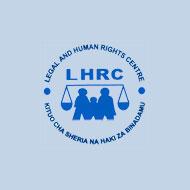
Member(s)
Legal and Human Rights Centre (LHRC)
on 30 April 2020
The Legal and Human Rights Centre (LHRC) is registered as a private, non-governmental, non-partisan and non-profit making organization based in Tanzania, East Africa. The LHRC works to create legal and human rights awareness among the public, in particular the underprivileged section of the society of Tanzania, through legal and civic education, provision of legal aid, […]
United Republic of Tanzania

Member(s)
Foundation for Human Rights Initiative (FHRI)
on 30 April 2020
The Foundation for Human Rights Initiative (FHRI) is an independent, non-governmental organisation aiming to enhance the knowledge, respect and observance of human rights in Uganda. FHRI’s objective is to remove obstacles to democratic development. The organisation defends the fundamental freedoms enshrined in the 1995 Ugandan Constitution and other internationally recognised human rights instruments. FHRI undertakes […]
Uganda

Member(s)
Serbia Against Capital Punishment (SACP)
on 30 April 2020
Serbia Against Capital Punishment (SACP) was formed in 2012 to work towards universal abolition of the death penalty and to oppose its reintroduction in Serbia or any other country. It also opposes torture, as well as all other inhuman and degrading punishments. SACP maintains a data base of more than 7.000 persons sentenced to death […]
Serbia

Member(s)
Ville de Braine-l’Alleud
on 30 April 2020
The town of Brain-l’Alleud is located in Brabant wallon in the Hain valley, about twenty kilometres from Brussels. It has 37,000 inhabitants. Previously the site of the Battle of Waterloo in 1815, today the town welcomes much more peaceful activities, including a large number of NGOS and in particular an Amnesty International group and the […]
Belgium

Member(s)
Madrid Bar Association
on 5 May 2021
Founded in 1596, the Madrid Bar Association is made up of 77,000 lawyers, and its main mission is to defend their corporate interests and those of the citizens they serve. Likewise, the Bar guarantees its independence and the validity of the basic values of the profession, and provides its members with the services they need […]
2021
Spain

Member(s)
Kurdistan Human Rights Network
on 30 April 2020
2020
Iran (Islamic Republic of)
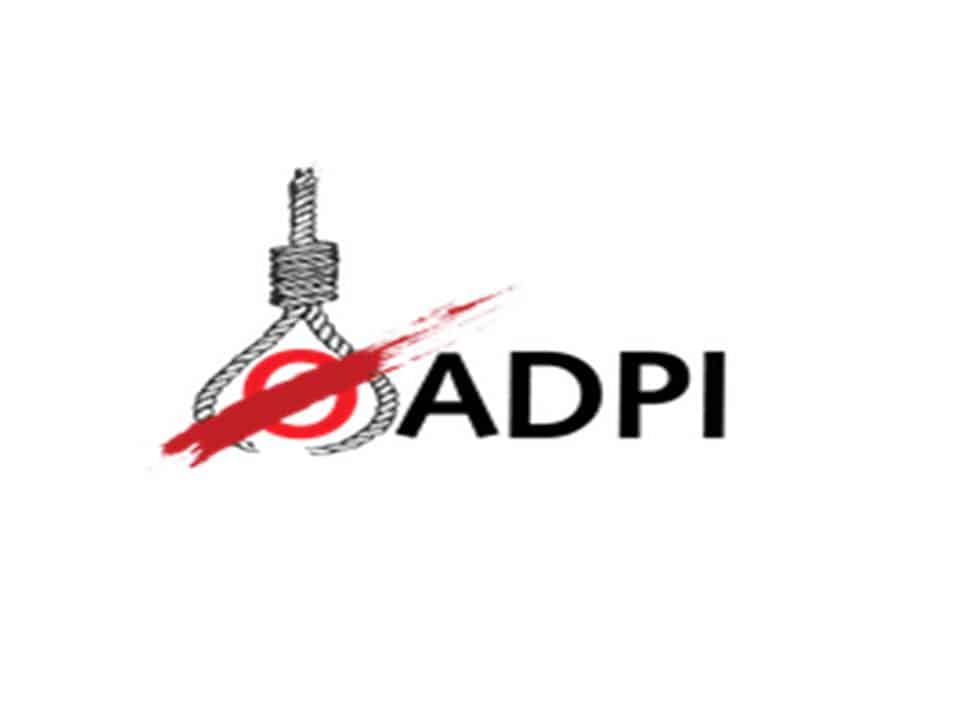
Member(s)
Abolition Death Penalty of Iraq Organization
on 30 June 2023
According to the Abolition Death Penalty of Iraq Organization, capital punishment is the state’s terminology for murder. Individuals murder each other, but states sentence individuals to ‘capital punishment.’ The demand to end capital punishment and prohibit murder stems from opposition to intentional, deliberate and planned murder of one by the other. That a state or […]
2023
Iraq
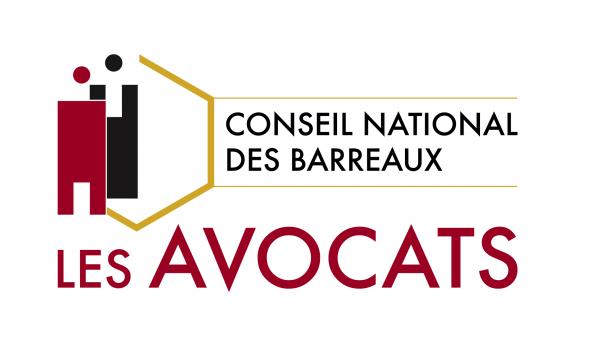
Member(s)
Conseil national des barreaux
on 30 April 2020
2020
France
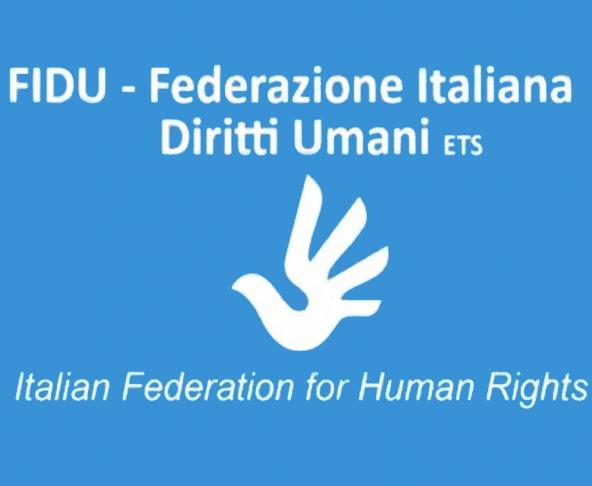
Member(s)
Italian Federation for Human Rights (FIDU)
on 30 April 2020
Active since 1987 as Italian Helsinki Committee, FIDU promotes the protection of human rights as enshrined in the Universal Declaration of Human Rights of 1948, the International Covenant on Civil and Political Rights and the International Covenant on Economic, Social in other relevant international documents. FIDU therefore intends to work to spread the knowledge of […]
Italy
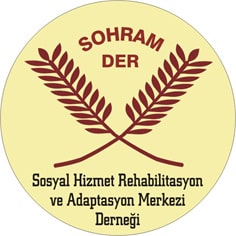
Member(s)
SOHRAM-CASRA
on 23 October 2024
Social Action, Rehabilitation and Rehabilitation Centre for Victims of Torture, War and Violence
2024
Turkey
Member(s)
Kenya Human Rights Commission
on 30 April 2020
2020
Kenya

Member(s)
Planète Réfugiés – Droits de l’homme
on 30 April 2020
Planète Réfugiés-Droits de l’Homme (PRDH) aims, through research, training and advocacy activities in France and internationally, at the effective realization of inherent human rights, as enshrined in the Universal Declaration of Human Rights, treaties and conventions protecting individual and collective freedoms, international standards and guidelines. In terms of research, PRDH focuses part of its action […]
France
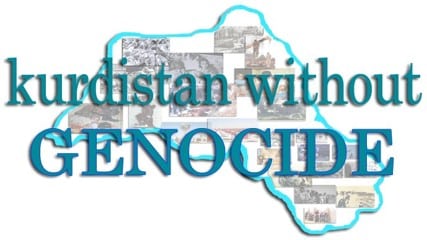
Member(s)
Kurdistan without Genocide
on 8 September 2023
Kurdistan without Genocide-KWG is non-govermental and non profite orgnisation working for human wright and against the genocide that was established in kurdistan regoing of Iraq in 2013. KWG is working to achive below goals: 1.Getting international recognition for the crimes perpetrated against the Kurdish people. 2.Nationalization of genocide events in Kurdistan to create a human […]
2023
Iraq

Member(s)
Ordre des avocats du Barreau de Versailles
on 30 April 2020
2020
France

Member(s)
Città di Reggio Emilia
on 30 April 2020
For a long time, the city of Reggio Emilia has been proud of its strong vocation for the struggle in defense of Human Rights, which is supported by the commitment of the entire community. An example is that, in order to strengthen its contribution in the struggle against apartheid in South Africa, the city signed […]
Italy
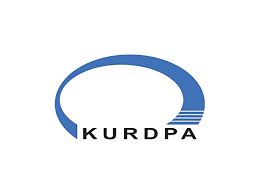
Member(s)
Kurdpa Human Rights Organization
on 29 November 2023
KURDPA is a human rights organization and independent news agency, and is a leading source for the latest information on Kurdistan in Iran, with daily coverage in three languages. Founded in 2011, KURDPA’s on-the-ground reporting highlights human rights concerns affecting the Iranian Kurdish community. Kurdpa Organization intends to compensate the existing shortcomings in identifying and […]
2023
Iran (Islamic Republic of)
Member(s)
Città di Venezia
on 30 April 2020
The city of Venice is globally renowned for its unique cultural heritage and location. Venice is strongly mobilised to improve the well-being of its inhabitants, by promoting a peaceful coexistence among its people and stimulating inter-religious and intercultural dialogue. In this way the city is following the example of tolerance set by the ancient “Serene […]
2020
Italy
Member(s)
Association Mauritanienne des Droits de l’Homme (AMDH)
on 30 April 2020
Mauritania

Member(s)
Observatoire Marocain des Prisons
on 30 April 2020
L’Observatoire marocain des prisons (OMP) is an independent non-governmental organisation created by human rights activists to protect and promote the rights of prisoners. It monitors prison conditions in Morocco, provides legal assistance to prisoners and runs a research, information and advocacy centre for more humane prisons. The OMP considers that the dignity and physical and […]
Morocco

Member(s)
REPRODEVH-Niger
on 30 April 2020
Created in 2011 by young people and structures concerned with defending human rights, the Progress and Humanitarian Development Network of Niger is a collective of NGOs/ADs whose aim is to defend democracy and good governance, through the promotion of health, education, human dignity for all, the fight against the death penalty, torture and all related […]
Niger
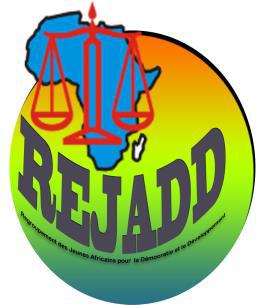
Member(s)
REJADD-Togo
on 30 April 2020
The Young African Group for Democracy and Development, Togo-chapter (REJADD-Togo) is an organization promoting and protecting human rights and humanitarian actions. It was officially created on August 11, 2006 and currently has an official chapter in Mali. The REJADD-Togo aims to contribute to the sustainable, integral and harmonious development of Africa in general and Togo […]
Togo

Member(s)
Ligue Ivoirienne des Droits de l’Homme
on 30 April 2020
The Ligue ivoirienne des droits de l’Homme [Ivory Coast Human Rights League, LIDHO] is politically and religiously independent. Its main aim is to work towards creating a state of law in Ivory Coast. To achieve that objective, it works in particular towards strengthening the legal system and ensuring an independent justice system and fair and […]
Côte d'Ivoire

